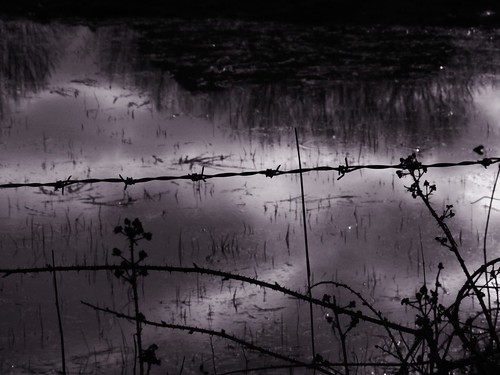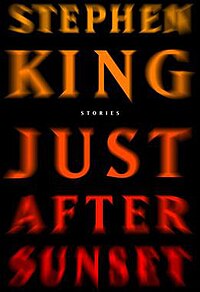She discovered today's story, "The Red House", in the 1997 edition of the
O'Henry Prize Stories which was assigned in one of her college classes (this is also the book where she first read Carol Shields). She thinks she even wrote an essay about "The Red House", regarding its ending especially, which is fantastic in its brevity and poetry. The story follows a quiet boy who lives in an isolated family with a strange father (this is totally based on her memory).
There is no excerpt because her copy of the prize stories was eaten her dog Gretta, then a puppy.
For years, she has hunted for this writer while the story haunted her. But he was difficult to find; perhaps because his last name has a typo on the Random House website ("
MacMillian"), or perhaps because the story's title isn't listed in anywhere but three places online. But after some sleuthing, she has found out these important details: "The Red House" originally appeared in
The Gettysburg Review;
it appears in MacMillan's book
Our People: Stories (2008), which has a publication year one year after his death; and in an interview with Karen I. Johnson, MacMillan had this to say about "The Red House":
[Question by Johnson]
Two of these stories, “A Story of Water You Could Never Tell”
and “The Red House” are not what I would consider traditional
narratives. How would you describe the style of these two stories
and what led you to write in this style?
[MacMillan's Response]
“The Red House” was an experiment in the use of second
person (you). It felt right, until I read some draft and saw
the word ‘you’ too many times, so I began crossing them
out, in effect crossing out subjects and verbs of a lot of
sentences, which gave the narrative a kind of stream of
consciousness quality. The result enhances the tangibility
of the experience, I think, and “A Story of Water You
Could Never Tell” was a further exercise in the use of this
approach.
*
Needless to say, this story is high up on her list of excellent stories, and thanks to National Short Story month and choosing a story a day, she has found its book and has ordered her copy. She hopes you will, too.
by Ian T. MacMillan,
(1996)








 It would be a total fault not to include Stephen King in a celebration of National Short Story Month since he is one of the working masters of the short story. Any number of his stories could be selected, but the reasoning for the selection of his story "The Things They Left Behind" are these: 1) It's one of King's more recent works, and she thinks, shows more his abilities than some of his recent longer works; and 2) it's one of the few creative works to deal with 9/11 in a smart and cathartic manner.
It would be a total fault not to include Stephen King in a celebration of National Short Story Month since he is one of the working masters of the short story. Any number of his stories could be selected, but the reasoning for the selection of his story "The Things They Left Behind" are these: 1) It's one of King's more recent works, and she thinks, shows more his abilities than some of his recent longer works; and 2) it's one of the few creative works to deal with 9/11 in a smart and cathartic manner.